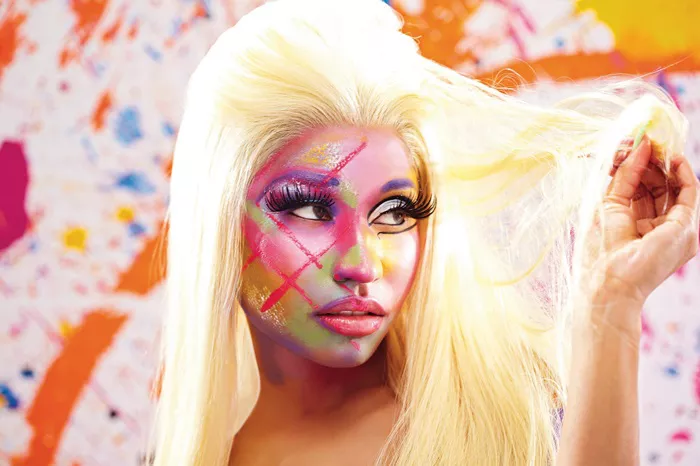Hip hop music videos have long been a vibrant and influential aspect of popular culture. These videos, known for their energetic visuals, flashy aesthetics, and dynamic performances, have played a crucial role in shaping the identity and reach of hip hop music. However, alongside their artistic and cultural significance, hip hop music videos have also faced significant criticism for their portrayal of women. This article aims to delve into the ways in which hip hop music videos objectify women, examining the historical context, common themes, and the broader societal impact of these portrayals.
Historical Context of Hip Hop and Women
Hip hop emerged in the 1970s in the Bronx, New York City, as a cultural movement encompassing music, dance, art, and fashion. It provided a voice for marginalized communities, expressing their struggles, aspirations, and experiences. Women played a significant role in the early days of hip hop, both as artists and influencers. However, as the genre grew in popularity and commercial success, the representation of women in hip hop music and videos began to shift.
The Evolution of Female Representation
In the early stages of hip hop, female artists like MC Lyte, Queen Latifah, and Salt-N-Pepa challenged gender norms and addressed issues such as gender equality and women’s empowerment. Their music videos often portrayed women as strong, independent, and multifaceted individuals. However, as hip hop became more mainstream in the 1990s and 2000s, the representation of women in music videos increasingly conformed to stereotypical and objectifying roles.
Common Themes in Hip Hop Music Videos
Hypersexualization
One of the most pervasive themes in hip hop music videos is the hypersexualization of women. Women are frequently depicted in scantily clad outfits, engaging in provocative dance moves, and positioned as objects of male desire. These portrayals often emphasize physical attributes, reducing women to mere sexual objects. This trend perpetuates harmful stereotypes about women’s worth being tied to their physical appearance and sexual availability.
Power Dynamics and Male Gaze
Hip hop music videos often reinforce traditional power dynamics, with men portrayed as dominant figures and women as submissive or decorative accessories. The concept of the “male gaze,” where women are depicted from a male perspective for the pleasure of male viewers, is prevalent in these videos. This reinforces the notion that women’s primary role is to cater to male fantasies and desires, further objectifying them.
Materialism and Objectification
Another common theme is the association of women with material wealth and luxury. Women in hip hop videos are often shown surrounded by expensive cars, jewelry, and lavish lifestyles, implying that their value is tied to their association with wealth and status. This materialistic portrayal reduces women to commodities, reinforcing the idea that they can be bought, owned, and controlled.
The Broader Societal Impact
Perpetuation of Stereotypes
The objectification of women in hip hop music videos contributes to the perpetuation of harmful stereotypes. It reinforces the idea that women’s primary value lies in their physical appearance and sexual desirability, marginalizing their intelligence, talents, and contributions. These stereotypes can influence societal attitudes and behaviors, leading to the normalization of sexist attitudes and the devaluation of women in various contexts.
Influence on Young Audiences
Hip hop music videos have a significant influence on young audiences, particularly adolescents who are in the process of forming their identities and understanding of gender roles. The objectification of women in these videos can shape young viewers’ perceptions of relationships, body image, and self-worth. It can also contribute to the internalization of harmful gender norms, impacting their interactions and expectations in real life.
Impact on Female Artists
The objectification of women in hip hop music videos also affects female artists within the industry. Female musicians may feel pressured to conform to hypersexualized images to achieve commercial success, limiting their artistic expression and reinforcing narrow definitions of femininity. This pressure can create a challenging environment for female artists who wish to challenge stereotypes and present more diverse representations of womanhood.
Efforts to Challenge and Change
Female Empowerment and Representation
Despite the pervasive objectification, there have been notable efforts within the hip hop community to challenge and change the portrayal of women in music videos. Female artists like Cardi B, Nicki Minaj, and Megan Thee Stallion have used their platforms to assert their agency and challenge traditional gender roles. Their music videos often celebrate female empowerment, self-expression, and sexual liberation on their terms.
Industry Initiatives and Advocacy
Various industry initiatives and advocacy groups have also emerged to address the issue of objectification in hip hop music videos. Organizations like the Hip Hop Sisters Foundation and the Representation Project work to promote positive and diverse representations of women in media. These efforts aim to raise awareness, educate, and create a more inclusive and equitable media landscape.
See Also: Who is the Richest in Hip Hop Music? Revealed!
Conclusion
Hip hop music videos have undoubtedly played a significant role in shaping popular culture and influencing societal attitudes. However, the objectification of women in these videos remains a pressing issue with far-reaching implications. By perpetuating harmful stereotypes, influencing young audiences, and impacting female artists, these portrayals contribute to a broader culture of sexism and inequality. It is essential for artists, industry stakeholders, and audiences to critically engage with these representations and advocate for more diverse, respectful, and empowering portrayals of women in hip hop music videos. Through collective efforts, it is possible to foster a media landscape that values and celebrates the full humanity and potential of women.

